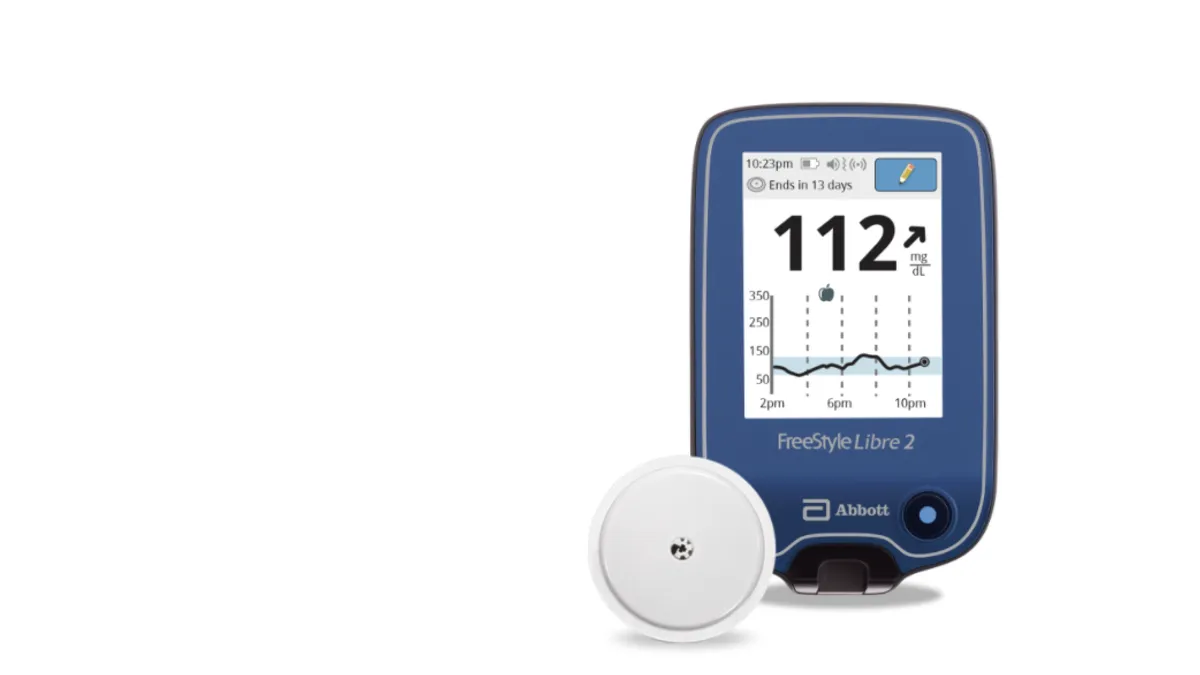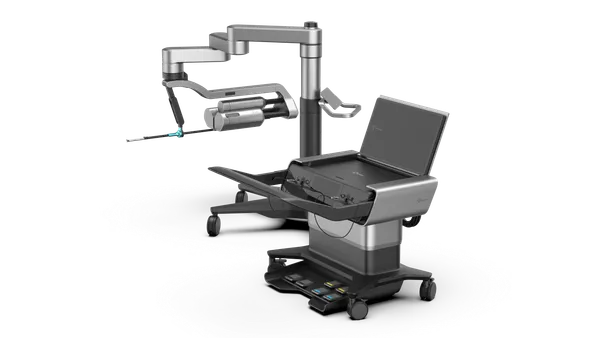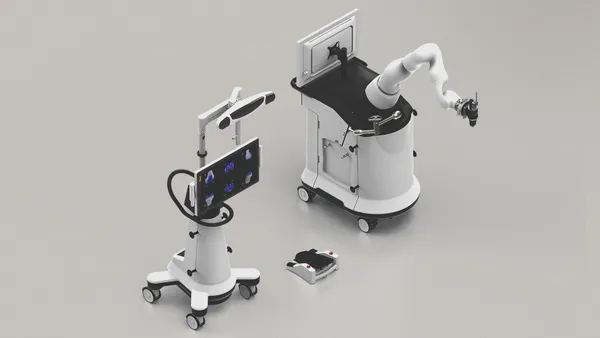Dive Brief:
- A randomized controlled trial has linked Abbott’s FreeStyle Libre 2 continuous glucose monitor (CGM) to significantly lower blood sugar levels than fingerstick testing.
- The study, details of which were published in The New England Journal of Medicine, was run by hospitals in the U.K. to test if CGMs benefit people with Type 1 diabetes and high blood glucose levels.
- Patients who used FreeStyle Libre for 24 weeks experienced a mean 0.8 percentage point decline in their blood glucose level, causing the study to hit its primary endpoint, and spent 130 minutes longer in their target range each day.
Dive Insight:
Going into the study, the researchers were unsure if CGMs with optional alarms for high and low blood glucose levels benefit patients with Type 1 diabetes and high glycated hemoglobin levels. To clear up the uncertainty, multiple U.K. hospitals ran a randomized trial of 156 people comparing the use of Abbott’s FreeStyle Libre 2 with fingerstick testing for 24 weeks.
Blood glucose levels in the CGM cohort fell by 0.8 percentage point, a magnitude of decline associated with decreased risk of complications, compared to a drop of 0.2 percentage point in the control group. The difference between the two groups was statistically significant.
FreeStyle Libre also outperformed the control on other measures, according to the study. Users of the CGM spent more time in their target glucose range and 43 minutes less per day with low blood sugar. Two people in the control arm had an episode of severe low blood sugar.
The study also evaluated patient satisfaction with diabetes treatment and glucose monitoring. Patients using FreeStyle Libre scored higher on the Diabetes Treatment Satisfaction Questionnaire and Glucose Monitoring Satisfaction Survey, indicating greater overall satisfaction with Abbott’s CGM than with fingerstick testing. The researchers now are evaluating whether the CGM system was cost effective.












